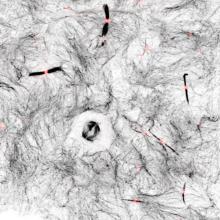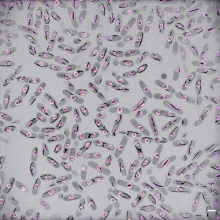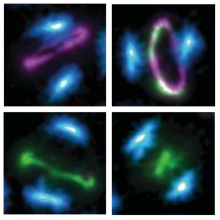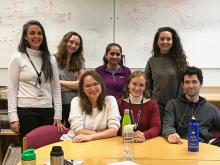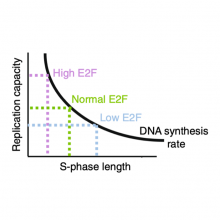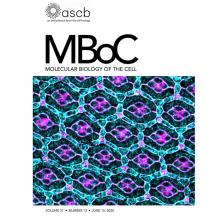Splitting to differentiate | New Dev Cell publication for Paluch Lab
Siân Culley receives RMS Chris Hawes Outreach and Education Award
The Royal Microscopical Society has named Sian Culley as the recipient of the inaugural Chris Hawes Outreach and Eduction Award. The award recognises those who have made a substantial contribution either to the field of education, or to outreach and public engagement over the course of their career. Congratulations Sian!
Obituary | Mary Price
We are extremely saddened by the death of Mary Price, a long-standing and popular member of our technical laboratory support team. Mary had worked with us at the MRC Laboratory for Molecular Cell Biology at UCL since 2002 and was an exceptionally hard-working member of the team.
Interview | Cell scientist to watch – Yanlan Mao
Yanlan Mao is interviewed for the Journal of Cell Science ‘Cell scientists to watch’ series. Read the interview here.
New publication in Nature for Baum lab
As eukaryotic cells divide, the nucleus must be remodelled into two distinct compartments, each encapsulating a single copy of the genome. Eukaryotes have evolved a bewildering range of strategies to achieve this - at one extreme, by disassembling the entire structure as cells begin to divide and reassembling it once division is almost complete.
New publication in Science for Baum lab
Yanlan Mao awarded 2021 RMS Life Sciences Medal
Yanlan Mao has been awarded the 2021 Royal Microscopical Society Life Sciences Medal, in recognition of her contribution to our understanding of how cells and tissues are shaped and organised during the developmental process.
Greeners Team win GOLD in 2020 UCL Sustainability Awards
Congratulations to the Greeners Team, for their continuining outstanding effort in promoting sustainability and environmental awareness at the LMCB.
New publication in Nature Communications for de Bruin lab
In order for a cell to proliferate with fidelity, it must cycle through two non-overlapping events - replication of the genomic DNA during S phase and the segregation of the duplicated DNA into two genetically identical daughter cells during M phase. DNA replication is tightly regulated during S-phase. S-phase length is determined by DNA synthesis rate, but what controls or limits the DNA replic
New publication in Molecular Biology of the Cell for Pichaud Lab
The shape of cells determines the shape and function of organs. However, how cell shape is controlled is not well understood.
 Close
Close


